Did you know that over 70% of plumbing business failures stem from avoidable trade practice mistakes? Mastering plumbing trade best practices isn’t just about fixing pipes—it’s about ensuring business longevity, customer trust, and professional satisfaction. Whether you’re a seasoned master plumber or a newly minted plumbing apprentice, adopting and consistently applying the right strategies can be the key difference between steady growth and early burnout. This comprehensive guide reveals the essential skills, mindset, and tools that set today’s most successful plumbing pros apart—and those you’ll need to thrive in a changing industry.
Why Plumbing Trade Best Practices Matter: Surprising Statistics and Industry Facts
- Startling data: over 70% of plumbing business failures are due to avoidable trade practice mistakes.
"In the plumbing trade, consistent best practices are the foundation of professional longevity and customer trust." – Industry Leader
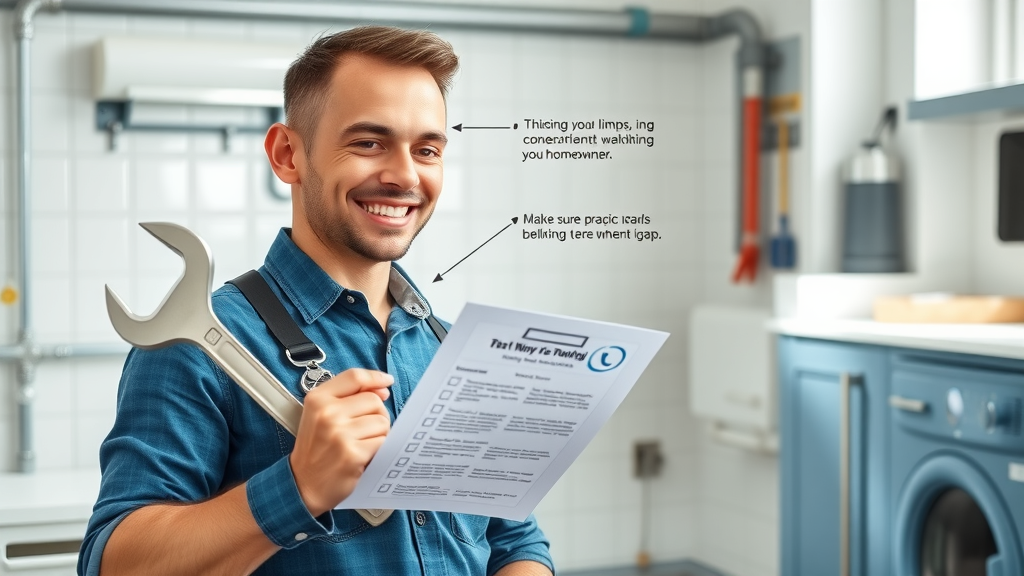
Implementing plumbing trade best practices is more than a checklist—it's a fundamental approach that impacts every client interaction, every water heater repair, and every service call. The plumbing industry faces rapid technological changes, tighter regulations, and increasing customer expectations. Studies show that plumbing business owners who focus on skills, transparent service calls, and reputation management outpace those still using outdated methods. These pros consistently deliver work that is compliant, efficient, and meets the highest standards of the trade. From field service management improvements to online review management, every detail shapes your bottom line and reputation.
Plumbing apprentices and business owners alike now contend with digital advancements and new regulations. Being able to adapt and respond ensures fewer call-backs, more positive online reviews, and greater career stability. The best professionals don’t just solve plumbing problems—they build trust, ensure safety, and create a loyal customer base that drives new leads for years to come. This makes commitment to best practices not only beneficial for service management and compliance but vital for the very survival of any plumbing company today.
What You’ll Gain from Plumbing Trade Best Practices
- Comprehensive understanding of essential plumbing business strategies
- Key skills for plumbing apprentices and seasoned professionals alike
- Insights into customer service and online review management
By mastering plumbing trade best practices , you’ll unlock a roadmap for professional growth, improved customer service , and a strong reputation in any market—be it commercial plumbing or domestic calls. Plumbers who dedicate themselves to learning best practices experience fewer emergency call-backs, happier clients, and increased revenue from maintenance contracts.
You’ll gain the know-how to select the right tools, comply with UK Building Regulations , and handle the nuances of complex plumbing systems . Apprentices will see how “soft skills” and follow-up matter as much as technical fixes. Business owners will learn to leverage technology for online plumbing reputation and higher service management efficiency. Ultimately, adopting these practices is the best insurance for your plumbing business.
Core Plumbing Trade Best Practices to Elevate Your Plumbing Business
Building a Reputable Plumbing Business through Skills and Reliability
- Prompt response and transparent quotes
- Continuous education in the plumbing trade
Establishing trust in the plumbing trade begins with punctuality and clear communication. Modern customers expect fast response times for both emergency and routine maintenance contracts. Providing up-front, transparent quotes —especially for first-time service calls—builds early confidence and minimizes disputes. Seasoned pros also know that continuous education on the latest techniques and code changes sets them apart, as every successful master plumber understands the value of staying current. Attending trade school refreshers or manufacturer trainings on the latest water heaters or environmentally friendly piping options demonstrates commitment.
Reliability isn’t just technical—it’s about showing up as promised and completing work that lasts. Word-of-mouth referrals and glowing online reviews are won by consistently exceeding expectations. Behind the scenes, meticulous recordkeeping—from service calls to apprenticeship program progress—ensures repeat business and legal protection. Modern field service software can streamline this too, making it easier to operate with excellence.

Key Regulations Every Plumbing Professional Should Follow
- UK Building Regulation compliance
- Environmental standards in plumbing trade
Working within the plumbing industry means strict adherence to regulations like UK Building Regulations —especially important for those taking on commercial plumbing jobs. Not only do these dictate safe installations, but they also help minimize risk of future failures and costly call-backs. Complying with updated codes, whether for drainage slopes or water supply, ensures your work is legal and insurable. Ignorance of codes is one of the surest ways to see a plumbing business fail.
Environmental standards are rising in tandem with customer and governmental expectations. Water-saving technologies, sustainable materials, and responsible plumbing system design are often required for both residential and commercial plumbing work. Understanding current requirements helps win larger contracts and demonstrates your position as an industry leader. Regular engagement with trade bodies and ongoing training are essential to keep up.
Using Technology for Modern Plumbing Business Operations
- Digital invoice management
- Scheduling tools and online reviews
Technology is reshaping the plumbing trade, with digital transformation evident in everything from invoice management to scheduling service calls. Today’s top performing plumbers use apps for instant quoting, job tracking, and follow-ups, reducing paperwork errors and response times. Integrating field service management software turns complex records into actionable insights, streamlining everything from repeat calls to maintenance contracts.
Online reviews and reputation management are now essential. Automated reminders and scheduling software help secure repeat business and encourage positive feedback. Digital invoices not only improve cash flow but also simplify tax compliance for business owners. In a competitive field, those who embrace technology enjoy smoother operations, happier clients, and dazzling growth.

Growing in the Plumbing Trade: Career Pathways and Education
Plumbing Apprentice Success: From Trade School to Site
- Top-rated trade school programs
- Hands-on experience during apprenticeship program
A successful career in the plumbing trade often begins at a respected trade school —where aspiring pros learn not just the basics of plumbing systems but also health, safety, and customer relations. These schools are essential for building a solid knowledge base before real-world application. However, the most critical growth happens during an apprenticeship program , where skills are refined under the guidance of seasoned professionals.
During this hands-on learning, apprentices gain practical experience with pipe fitting, water heater installation, and problem-solving in the field. Exposure to daily site work accelerates learning far beyond the classroom, crafting trade-ready plumbers who can tackle complex challenges. Success at this stage means dedication: seeking feedback, learning quickly from mistakes, and adopting best practices as second nature.
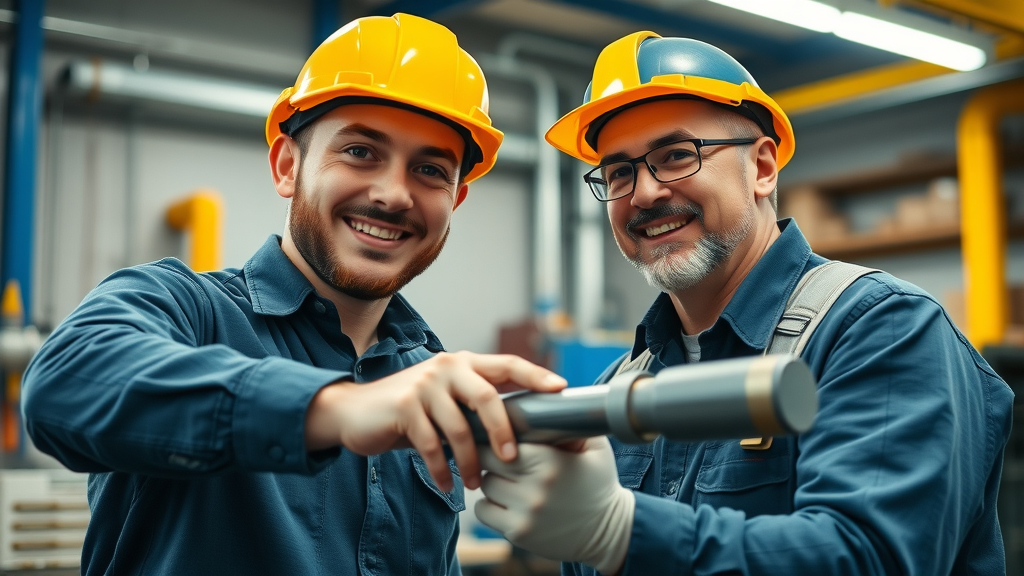
Commercial Plumbing Skills vs. Residential Plumbing Trade Know-How
- Large-scale system installation and safety protocols
- Identifying high-demand commercial plumbing niches
Commercial plumbing and residential trade work require overlapping but distinct skill sets. On large commercial sites, understanding large-scale system installation and coordinated safety protocols is crucial. Installations might span entire buildings with advanced water heaters, backflow prevention, or complex drainage. Safety compliance becomes even stricter, especially where public use is involved or where there are penalties for delays and violations.
Meanwhile, residential plumbing focuses more on home water heater systems, quick emergency responses for a clogged drain, and personalized service. Identifying and targeting high-demand commercial niches—such as healthcare facilities, hospitality, or government contracts—can provide significant profit potential for seasoned pros. These projects often come with ongoing maintenance contracts that form the steady backbone of a plumbing business.
Essential Tools and Equipment Every Plumbing Pro Relies On
| Tool | Function | Cost Range |
|---|---|---|
| Pipe Wrench | Tightening and loosening pipes | £20 - £60 |
| Adjustable Spanner | Flexible nut and bolt fastening | £15 - £40 |
| Basin Wrench | Fitting/tightening nuts under sinks | £10 - £25 |
| Inspection Camera | Diagnosing pipe blockages/leaks | £70 - £300 |
| Digital Multimeter | Testing electrical elements in water heaters | £30 - £100 |
| PPE (Gloves, Safety Glasses) | Personal safety on plumbing jobs | £5 - £20 |
Every skilled trade professional knows that having the right tools is essential for delivering great results and operating efficiently. Beginners often start with a basic kit, but as you take on more complex plumbing jobs or enter commercial plumbing contracts, you’ll need specialized gear—like inspection cameras for diagnosing tricky leaks or digital tools for modern water heater repairs. Investing in high-quality equipment ensures reliable service, fewer breakdowns, and happier clients.
For plumbing apprentices and business owners, tracking and maintaining your tool inventory is as important as buying the right wrench. A missing or broken tool can mean lost time and money. Many companies now use digital inventory systems to make sure every pipe cutter and inspection camera is where it’s needed, ready for the next service call.
Maintaining and Replacing Tools for a Reliable Plumbing Trade Operation
- Routine inspections and digital equipment tracking
Routine inspection and maintenance of your tools is a non-negotiable plumbing trade best practice . Before each shift, pros check their kit for signs of wear, ensuring no tool fails in the middle of a crucial water heater service or emergency plumbing job. Recording tool conditions digitally gives business owners peace of mind and helps manage costs.
Replacing old or damaged equipment before it causes a service disruption is a hallmark of top plumbing businesses. Not only does this practice protect your reputation, but it also ensures safety for your employees and clients. By integrating digital equipment tracking—sometimes available with modern field service management software—you can ensure a more reliable, efficient, and professional operation.
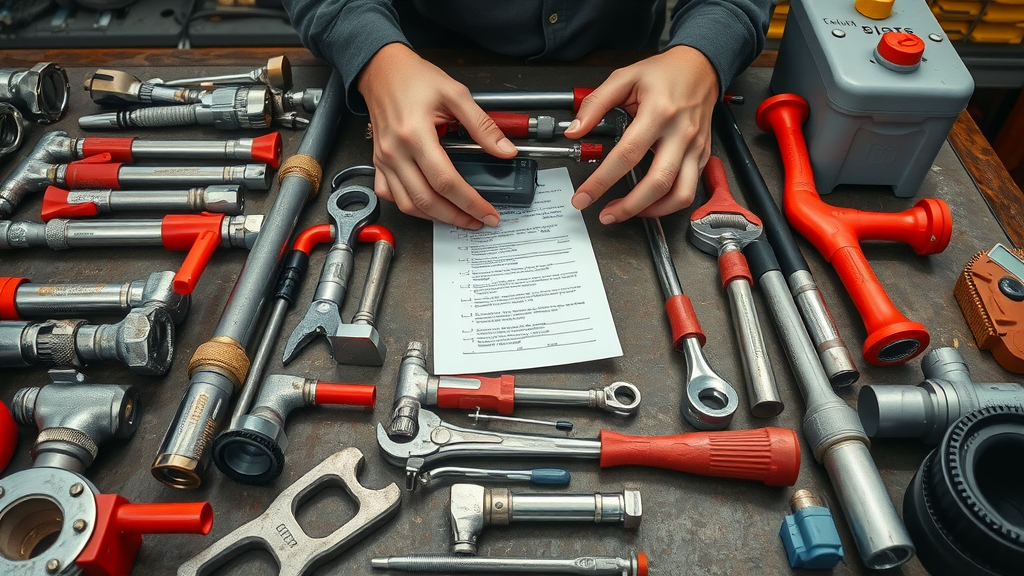
Customer Service and Online Reviews: The Competitive Edge in the Plumbing Business
Customer Service Skills Every Plumbing Apprentice Must Master
- Active listening, punctuality, follow-ups
Exceptional customer service is the secret to a thriving plumbing business. Success depends on more than great pipework or water heater installs—every client interaction matters. Plumbing apprentices must master active listening to fully understand plumbing problems, deliver punctual service calls, and provide thoughtful follow-ups to check on satisfaction. These “soft skills” lead to trust and customer loyalty, especially valued in the skilled trades.
For plumbing contractors and experienced pros, maintaining a polite, helpful attitude even during stressful emergency plumbing jobs distinguishes you from competitors. Word-of-mouth and positive online reviews originate from these outstanding customer service moments, which are just as important as technical expertise.

Managing Online Reviews to Build a Thriving Plumbing Business
- Encouraging positive online review submissions
- Professional responses to negative online reviews
In today’s internet-driven market, your business’s success is only as good as your latest online review . Plumbing pros must encourage clients to submit positive online reviews after each completed service call, especially when a water heater repair or urgent plumbing fix impresses. Following up with a simple “Would you mind leaving a review?” can transform satisfied clients into advocates.
Equally crucial is handling negative online reviews professionally. Respond fast, acknowledge the client’s concern, and offer a solution. Prospective clients are drawn to businesses that publicly demonstrate accountability. Consistent attention to online review management not only wins new customers but secures repeat business in the fiercely competitive plumbing industry.
Troubleshooting and Preventative Solutions in the Plumbing Trade
Proactive Water Heater Maintenance and Other Plumbing Essentials
- Seasonal checklists for water heaters and common plumbing systems
Preventative solutions are at the core of plumbing trade best practices . Plumbing businesses that use seasonal checklists for water heaters, pipes, and valves enjoy fewer emergency call-outs and delighted clients. Water heater maintenance should include sediment drainage, pressure relief valve testing, and inspection for leaks.
Likewise, reviewing all major plumbing systems each season (especially before winter) helps prevent frozen pipes, undetected leaks, and inefficient appliances. Successful pros advise their clients on simple preventative routines, establishing themselves as experts and reducing time spent on avoidable crisis calls.
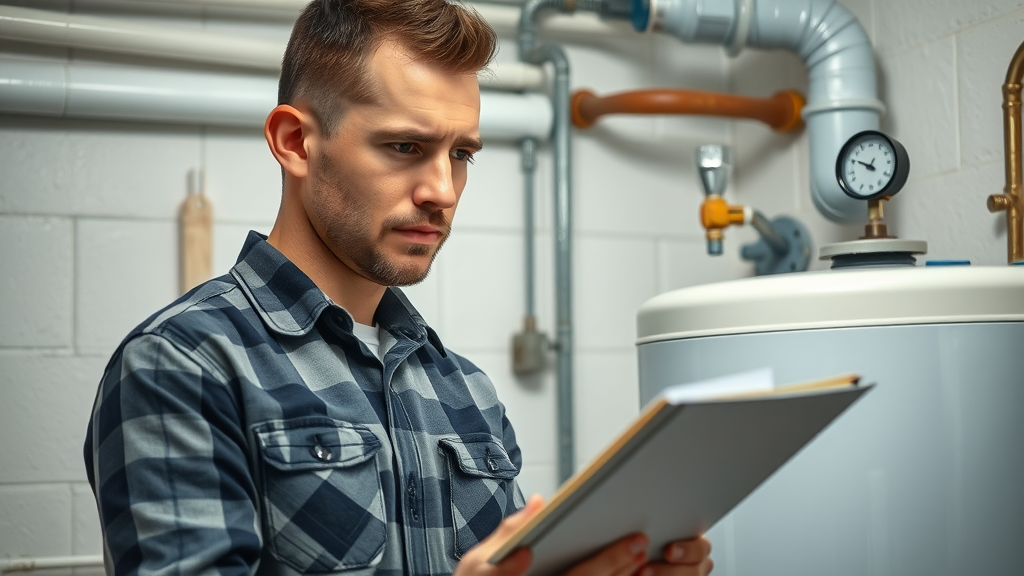
Common Plumbing Trade Challenges and Best Practice Solutions
- Identifying leaks quickly: Use inspection cameras and pressure tests for rapid diagnosis.
- Preventing frozen pipes: Install insulation and educate clients on cold weather risks.
- Reducing water waste: Recommend low-flow fixtures and check regularly for drips.
- Complying with latest safety standards: Keep up-to-date with regulations and safety courses.
Frequent plumbing problems—like a clogged drain, leaks, or water heater failures—can have costly repercussions if not addressed with proven best practices. Veteran plumbers tackle these issues systematically, using advanced diagnostic equipment and clearly defined protocols. Educating clients and staff about these processes further reduces error margins and builds business credibility.
Video: Plumbing Trade Best Practices in Action
Watch real pros demonstrate plumbing trade best practices from water heater maintenance to client consultations. See how digital scheduling, customer follow-ups, and rigorous compliance drive business growth and reliability.
Professional Growth and Business Expansion in Commercial Plumbing
Transitioning from Plumbing Apprentice to Business Owner
- Leadership skills and networking strategies
Aspiring to move from apprentice to business owner in the plumbing trade? Mastering the technical skills is only the start—leadership, networking, and business administration are equally vital. Strong mentors can teach hard truths about entrepreneurship in the skilled trades, from managing overhead and field service crews to cultivating a reliable supply network.
Active participation in trade bodies, community workshops, and industry seminars expands professional reach and credibility, paving the way to launch and grow a reputable plumbing company. Networking also increases access to lucrative commercial plumbing contracts and collaborative growth.
Securing Lucrative Commercial Plumbing Contracts
- Proposals, presentations, and relationship management
Winning substantial commercial plumbing contracts requires more than technical ability—it takes strategic proposals and skilful presentations. Investing in business development—via tailored pitches, well-documented work portfolios, and a steady online presence—positions your company for partnership opportunities. Relationship management with facilities managers and property owners is ongoing; delivering consistent value and proactive communication secures renewal and referrals.
Tech-enabled service management, transparent rate pricing, and on-time completion further elevate your bid above competitors. With these best practices in place, your plumbing company quickly becomes a go-to partner for complex, large-scale installations and long-term maintenance contracts.
Expert Insight: Quotes from Leading Professionals in the Plumbing Trade
"Adaptability and continuing education are what set true plumbing trade professionals apart." – Ed Serrell, Ed Serrell Plumbing and Heating
"Customer service is no longer optional; it’s a plumbing business necessity." – Trade Association Spokesperson

People Also Ask: Answers to Popular Plumbing Trade Questions
Is plumbing a high paying trade?
- Plumbing trade salaries often surpass other trades due to specialist knowledge, with opportunities for six-figure earnings in commercial plumbing and business ownership.
The plumbing trade is considered one of the higher-paying skilled trades. Those who invest in expanding their expertise, particularly in commercial plumbing or who move into owning a plumbing business, see opportunities for significant financial rewards and career growth.
What is the plumbers rule?
- The plumber’s rule generally relates to maintaining proper slope (typically 1/4" per foot) for pipes to ensure effective drainage—a core best practice in the plumbing trade.
Mastering proper pipe slope is fundamental, as it ensures water and waste flow efficiently through the plumbing system. This principle is widely taught in trade school and enforced by building codes in all professional plumbing work.
What is the hardest thing in plumbing?
- Diagnosing complex leaks, working in confined spaces, and balancing new technologies are among the biggest challenges faced by plumbing trade professionals.
For many in the plumbing trade, pinpointing elusive leaks and updating knowledge to cover new tech (like smart water heaters or advanced diagnostic equipment) pose consistent hurdles. Developing best practices helps overcome these issues efficiently.
How to be the best plumbing apprentice?
- Dedicate yourself to learning both in trade school and on site, stay proactive, follow proven plumbing trade best practices, and seek mentorship from experienced plumbers.
A standout plumbing apprentice stays proactive, always seeks to understand both technical and customer service aspects, and eagerly follows feedback from mentors. Applying best practices learned at trade school and in the field ensures a solid reputation and fast-track career growth.
FAQ: Plumbing Trade Best Practices and Business Growth
- What certifications make a plumbing business stand out? Obtaining certifications like Gas Safe, WRAS, or NVQ Level 3 demonstrates advanced technical skill and regulatory compliance. These boost trust with clients and enhance your plumbing company’s bid for high-value contracts.
- Which plumbing trade best practices reduce costly call-backs? Meticulous installation, thorough system testing, ongoing staff training, and regular tool maintenance are best practices that minimize errors—leading to fewer call-backs and higher client satisfaction.
- How do online reviews affect new customer acquisition in the plumbing business? Positive online reviews dramatically increase the likelihood a potential client will choose your business, while quickly addressing negative reviews preserves your reputation.
- What mistakes should plumbing apprentices avoid early in their career? Rushing jobs, failing to communicate clearly with clients, and ignoring safety guidelines are common mistakes. Apprentices should focus on thoroughness and learning from each job.
Recap of Plumbing Trade Best Practices for Professionals
- Service quality, technical expertise, and customer-focused strategies are key elements for success in every plumbing business.
- Continuing education and online review management are crucial for career progression in the plumbing trade.
Contact Ed Serrell Plumbing and Heating for Expert Plumbing Trade Help
- For expert help or advice from Ed Serrell Plumbing and Heating call 0796 688 4368 , or email info@edsplumbing.co.uk
Actionable Next Step:
Sources
- CIPHE – https://www.ciphe.org.uk
- Gas Safe Register – https://www.gassaferegister.co.uk
- UK Building Regulations – https://www.gov.uk/building-regulations-approval
- Checkatrade – https://www.checkatrade.com
- Plumbing Trade Supplies – https://www.plumbingtradesupplies.co.uk/blog/plumbing-tools/
To further enhance your understanding of plumbing trade best practices, consider exploring the following resources:
-
“Plumbing Best Practices Every Business Owner Should Know” : This article offers practical tips on investing in quality tools, implementing comprehensive training programs, and focusing on customer service to elevate your plumbing business. ( plumbingperspective.com )
-
“Best Practices for Industrial Plumbing Safety & Compliance” : This resource emphasizes the importance of health and safety training, proper use of safety data sheets, and maintaining equipment in good repair to ensure safety and compliance in industrial plumbing settings. ( wentworthplumbing.ca )
By delving into these materials, you’ll gain valuable insights into effective strategies and safety measures that can significantly enhance your professional practice in the plumbing industry.
 Add Row
Add Row  Add
Add 

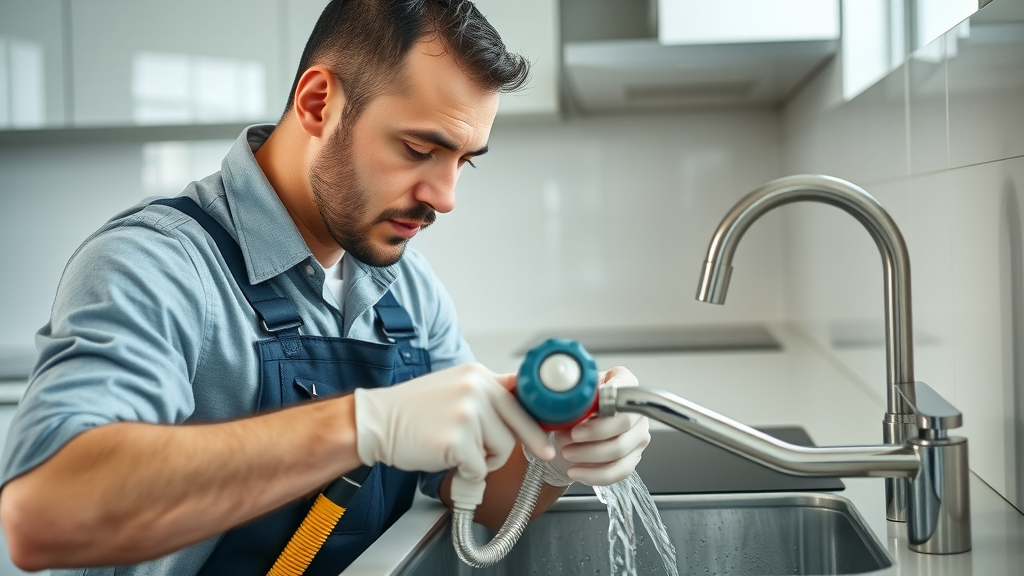

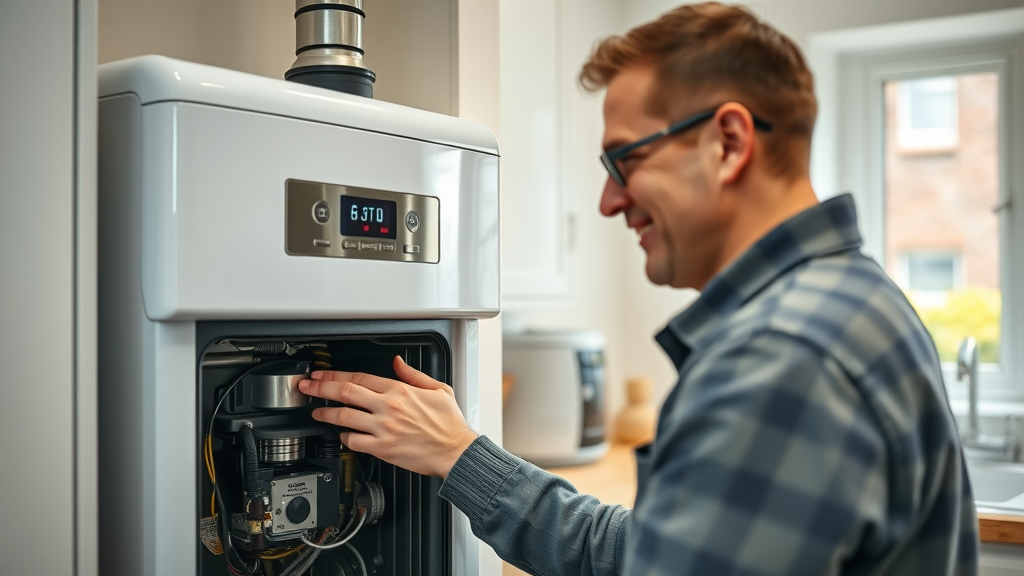
Write A Comment